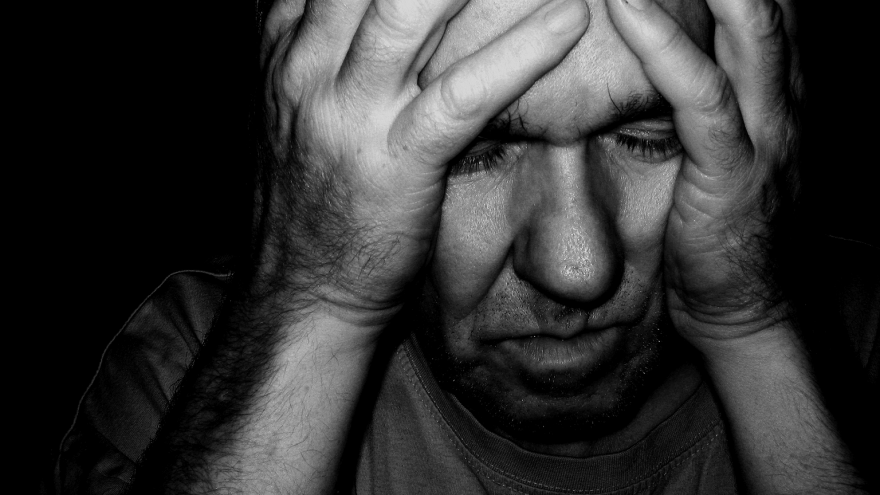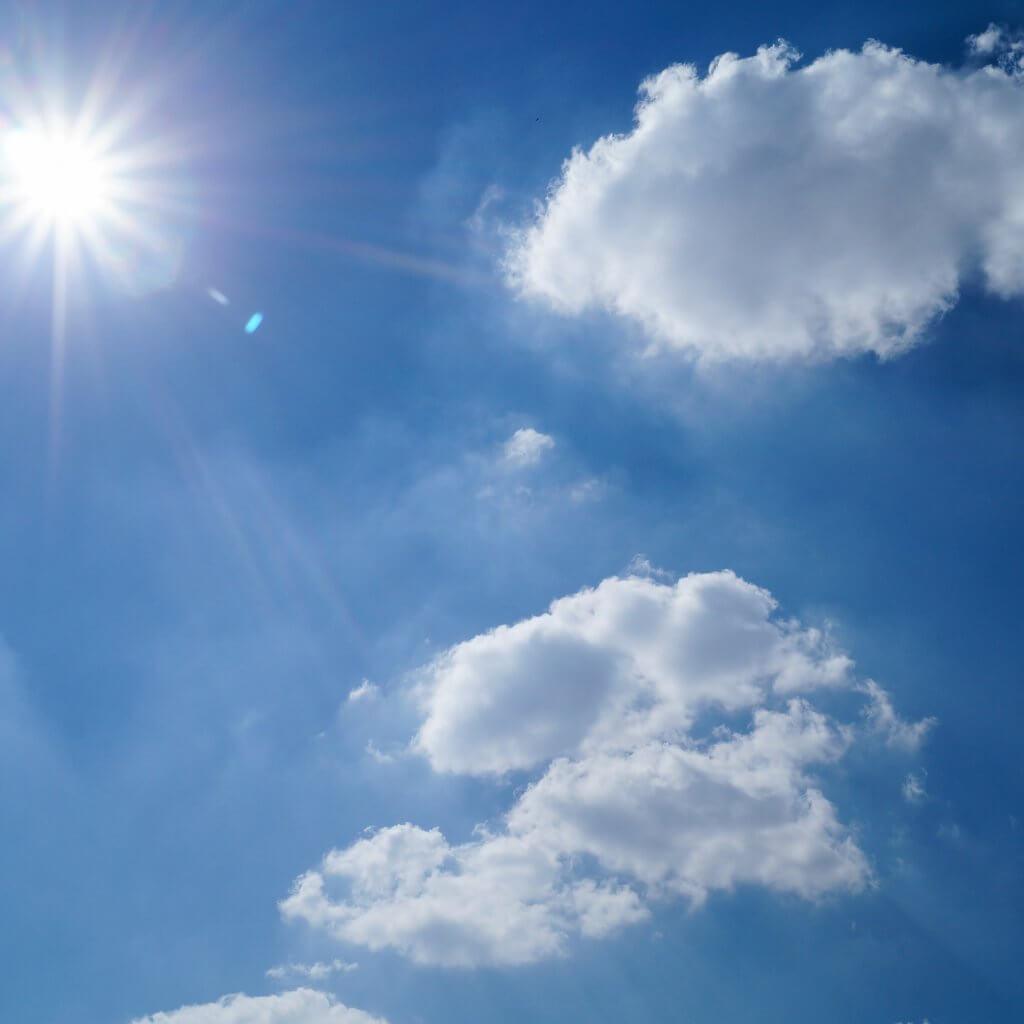Headaches After Running? Here’s Why (and How to Avoid It)

You’ve finished your long run and crushed your time goal, but instead of floating on a runner’s high, you’re in bed sporting an excruciating headache. And it’s not a once off occurrence either. Week after week, like clockwork, your running effort is rewarded with unbearable pain. So what gives? What is the cause of these post-run headaches, and is there a way to prevent it?

The good news is that you’re not alone. Approximately one third of athletes battle with the same phenomenon, and yes, there’s plenty you can do about it.
Two Types of Exercise Headaches
First off, it’s good to note that not all exercise headaches are the same. According to Dr. Bill Roberts, they can fall into one of two general categories, namely primary or secondary exercise headaches. Primary exercise headaches are throbbing in nature and can last anything from five minutes to 48 hours. These headaches involve both sides of the head and are, in most cases, benign. Secondary exercise headaches, on the other hand, are a lot more serious and can be associated with an underlying health problem. These underlying health problems vary widely, and may be something as serious as bleeding into the brain or a tumor. Secondary exercise headaches also often go hand in hand with one or more of the following symptoms:
- Nausea
- Vomiting
- Dizziness
- Double vision
- Neck rigidity
- A loss of consciousness

It therefore goes without saying that, should your exercise headache ever be associated with any of the symptoms above, you need to have it checked out by a healthcare professional as soon as possible. Also, if you ever experience a sudden, severe headache during or after running that intensifies at night, let your doctor know about it ASAP.
Possible Causes of Primary Exercise Headaches
Primary exercise headaches, as opposed to the more serious secondary exercise headaches, are very common and mostly benign. And while mild dehydration is the first and most obvious cause of primary exercise headaches that pops to mind, it can actually be caused by a number of different factors. These include the following:
- Changes in blood flow to the brain. Running causes blood vessels to dilate, which, for some individuals, may cause enough pressure to trigger a headache.
- An electrolyte imbalance. Running long (i.e. for an hour or more) or exercising in hot, humid weather may negatively impact your body’s electrolyte balance. This is especially relevant to individuals who tend to perspire excessively.
- Low blood sugar. Failure to ingest a small pre-run meal or snack, as well as not ingesting any nourishment within 30 minutes of your run may lead to low blood sugar levels. This, in turn, may contribute to post-run headaches.

- Dehydration. Being in a dehydrated state may cause the brain to temporarily shrink as a result of fluid loss. This causes the brain to pull away from the skull, which is experienced by a runner as a dehydration headache.
- Muscular tension caused by poor running form. A poor running posture may lead to running with tension in your neck, shoulders and upper back. Over time, this may lead to pulsating headaches.
- Bright sunlight. While most runners prefer sunny runs to rainy ones, bright sunlight may contribute to post-run headaches. Just like poor running form, excessive squinting may also lead to unwanted tension in the face and neck, so be sure to reduce the glare through other means.
- Migraines. For some migraine sufferers physical exertion may trigger migraine headaches.
And while this is by no means an exhaustive list, it will give you a good idea of where to start looking in order to get to the bottom of your primary exercise headaches. Take a good, honest look at your running rituals, and see if there’s any room for improvement. Are you adequately fueling pre- and post-run? Are you drinking to thirst during and after your run? Do you slouch on the run? And are your eyes properly protected against the sun? And if you really fail to see where changes can be made, recruit a running buddy to give an honest opinion.
Preventative Measures
So, depending on the cause of your post-run headaches, there are a number of easy and logical steps to take to avoid it:
- For headaches caused by an electrolyte imbalance, be sure to drink only to thirst and hydrate with something containing electrolytes, e.g. coconut water.
- If caused by low blood sugar, be sure to eat a small, balanced snack before heading out. Also remember to ingest a small, balanced meal (or smoothie) within 30 minutes of completing your run.
- For headaches caused by dehydration, be sure to drink to thirst before, during and after your run.
- If caused by tension resulting from poor running form, have your form assessed by a suitably qualified professional, like as physical therapist, chiropractor or sports medicine professional. You will most likely recieve a set of exercises aimed at strengthening and stretching specific postural muscles – do them religiously!
- For headaches caused by facial tension as a result of bright sunlight, be sure to arm yourself with a cap or visor and sunglasses before heading out.

Treatment of Primary Exercise Headaches
But what can you do to bring immediate relief while you’re working on getting to the root of the problem? Dr. Jordan D. Metzl recommends the following:
- Take an over-the-counter pain reliever only if really necessary. While common pain relievers like ibuprofen usually bring relief, keep in mind that a primary exercise headache may be over even before the medicine kicks in. So only take some if really necessary.
- Place a chilled face cloth on your forehead and the back of your neck. The cold wash cloth may bring relief by constricting dilated blood vessels.
- Use accupressure. Apply pressure to the web between your forefinger and thumb and massage in a circular motion. Repeat this with the other hand as well. Alternatively, use your thumbs to apply circular pressure to the areas halfway between the bony protrusions behind your ears and the middle of the back of the skull. Do this for five minutes at a time, several times a day.
- Relax your jaw muscles. Focus on relaxing your jaw muscle by placing a pencil between your teeth, without biting on it. Leave it there for five minutes.
The Takeaway
So, if you struggle with post-run headaches and your physician has eliminated any serious underlying health issues, play around with the suggestions above and see what works for you. It might just be the first step to kissing goodbye those post-run pains for good!
Sources
- , How to avoid headaches after your run, Online publication
- , Why do I get headaches after my long runs?, Online publication
- , How to prevent agonizing post-run headaches, Online publication
- , Headache triggers and exercise, Online publication
- , You're not crazy - Exercise-induced headaches are a real thing, Online publication
- , Dehydration headaches: Signs, treatment and prevention, Online publication
Latest Articles
 Is Running on a Treadmill Easier Than Running Outside?Runners have their own preferences, whether it is treadmill running, running outside on the road, or exploring trails. So...
Is Running on a Treadmill Easier Than Running Outside?Runners have their own preferences, whether it is treadmill running, running outside on the road, or exploring trails. So... Is It OK to Use Trail Running Shoes on the Road?While trail running shoes can be used on roads, especially in situations where a runner encounters mixed terrains or pref...
Is It OK to Use Trail Running Shoes on the Road?While trail running shoes can be used on roads, especially in situations where a runner encounters mixed terrains or pref... How to Fix Sore Quads After Running?Rest, ice, gentle stretching, and over-the-counter pain relievers can help soothe sore quads after running. Also, ensure ...
How to Fix Sore Quads After Running?Rest, ice, gentle stretching, and over-the-counter pain relievers can help soothe sore quads after running. Also, ensure ... 10 Fruits With The Most Electrolytes to Replace Sports DrinksThese fruits are high in electrolytes such as potassium, magnesium, and calcium, essential for hydration, muscle function...
10 Fruits With The Most Electrolytes to Replace Sports DrinksThese fruits are high in electrolytes such as potassium, magnesium, and calcium, essential for hydration, muscle function...

